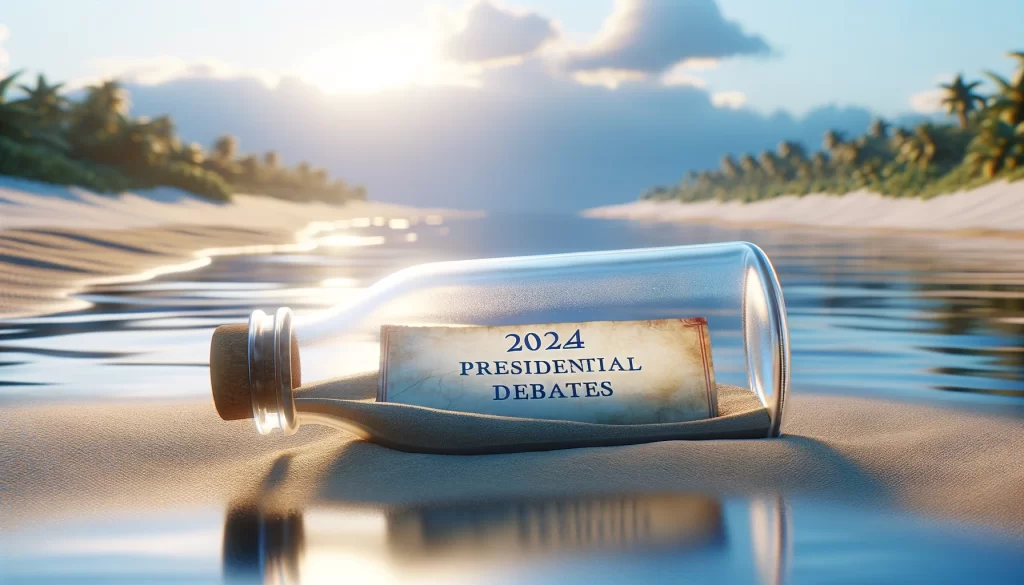President Joe Biden and former President Donald Trump have agreed to participate in two debates ahead of the 2024 presidential election. This agreement, reached through a series of announcements and social media exchanges, represents a break from traditional debate practices and introduces new dynamics into the campaign.
Debate Arrangements
The first debate is scheduled for June 27, 2024, and will be hosted by CNN at their studios in Atlanta, Georgia. The second debate will take place on September 10, 2024, hosted by ABC News. Notably, these debates will be conducted without live audiences, a move intended to focus on the candidates’ exchanges rather than audience reactions.
Breaking Away from Tradition
President Biden announced that he would not participate in the debates organized by the Commission on Presidential Debates (CPD), which has traditionally managed these events since 1988. Instead, Biden’s campaign proposed that media outlets directly organize the debates. This decision stems from frustrations with the CPD’s handling of the 2020 debates and a desire to have debates earlier in the election cycle.
In a letter, Biden campaign chair Jen O’Malley Dillon outlined several reasons for bypassing the CPD. She criticized the commission for scheduling debates too late in the election process, arguing that they would occur “after tens of millions of Americans will have already voted.” O’Malley Dillon also highlighted the CPD’s failure to enforce agreed-upon rules during the 2020 debates, particularly regarding masking and coronavirus-testing requirements. She stated, “The CPD was unable or unwilling to enforce the rules in the 2020 debates, when Trump famously talked over Biden and the moderator.” This dissatisfaction led the Biden campaign to seek a more controlled debate environment focused on the candidates’ exchanges rather than audience reactions.
O’Malley Dillon emphasized that the debates should be conducted “for the benefit of the American voters, watching on television and at home — not as entertainment for an in-person audience with raucous or disruptive partisans and donors.” The proposed debates aim to provide a more structured and meaningful platform for the candidates to present their views without the distractions of live audiences.

Campaign Statements
Following Biden’s announcement, Trump quickly accepted the proposed debate dates and locations. In a post on Truth Social, Trump stated, “I am Ready and Willing to Debate Crooked Joe at the two proposed times in June and September. I would strongly recommend more than two debates and, for excitement purposes, a very large venue, although Biden is supposedly afraid of crowds.” Biden responded by saying, “Donald Trump lost two debates to me in 2020, and since then he hasn’t shown up for a debate. Now he is acting like he wants to debate me again. Well, make my day, pal. I’ll even do it twice”.
Debate Conditions and Proposals
The Biden campaign has proposed specific conditions to ensure a structured and fair debate environment. These include firm time limits for responses, automatic microphone cutoffs to prevent candidates from interrupting each other, and the exclusion of third-party candidates such as Robert F. Kennedy Jr. The goal is to provide a focused and orderly platform for the two main candidates to present their views. The first debate is scheduled after the expected conclusion of Trump’s criminal trial in New York and Biden’s return from the G7 Summit in Italy.
CNN has confirmed that the June debate will be held in its Atlanta studios without an audience. The network stated, “The debates should be one-on-one, allowing voters to compare the only two candidates with any statistical chance of prevailing in the Electoral College — and not squandering debate time on candidates with no prospect of becoming President”.
Reactions and Implications
The agreement to these debates has generated significant attention and is expected to inject new energy into the election campaign. Both Biden and Trump have used the announcement to launch verbal jabs at each other, highlighting their competitive spirit and readiness to engage in direct confrontation. Trump, for instance, has repeatedly called for more debates and larger venues, while Biden has emphasized the need for structured and meaningful exchanges.
The move away from the CPD’s traditional role in organizing presidential debates marks a notable shift in how these critical events are managed. It reflects broader frustrations with the CPD’s perceived shortcomings and a desire for more control over the debate format and schedule. This change could set a new precedent for future presidential debates, emphasizing direct negotiations between campaigns and media organizations.
This article is based on the following articles:
https://www.washingtonpost.com/politics/2024/05/15/biden-trump-presidential-debates
https://www.nytimes.com/2024/05/15/us/politics/biden-trump-debates.html

Background Information
Introduction to Presidential Debates
Presidential debates are a series of televised events where the major candidates for the presidency discuss their policies and answer questions on various issues. These debates are a crucial part of the election process as they provide voters with the opportunity to compare the candidates side by side. Historically, these debates have been organized by the Commission on Presidential Debates (CPD), a nonpartisan organization established in 1987 to ensure that debates are a regular feature of presidential elections.
History of the Commission on Presidential Debates (CPD)
The CPD was founded by the Democratic and Republican parties to manage the logistics of presidential debates, ensuring fairness and consistency. The CPD sets the dates, locations, formats, and moderators for the debates. It also establishes rules that the candidates must follow. Since its inception, the CPD has organized every presidential debate, starting with the 1988 election. The commission’s goal is to provide voters with a clear understanding of the candidates’ positions on key issues.
Criticisms of the CPD
Over the years, the CPD has faced criticism from both political parties. Critics argue that the CPD’s rules and decisions sometimes favor one candidate over another or do not adequately address the needs of voters. For example, during the 2020 debates between Donald Trump and Joe Biden, there were significant issues with rule enforcement. The CPD failed to enforce agreed-upon masking and coronavirus-testing requirements, leading to concerns about the safety and fairness of the debates. Additionally, the CPD struggled to manage interruptions and maintain order, particularly in the first debate.
The Role of Media in Debates
Traditionally, major television networks such as CNN, ABC, NBC, CBS, and Fox News broadcast the debates. These networks provide moderators who ask the candidates questions on behalf of the public. The format can vary, including town hall settings where audience members ask questions directly, or more formal settings where moderators lead the discussion.
2024 Presidential Election Context
The 2024 presidential election is highly anticipated, featuring incumbent President Joe Biden, a Democrat, and former President Donald Trump, a Republican. This election follows a particularly contentious political period in the United States, marked by intense partisanship, economic challenges, and ongoing debates about the country’s direction.
Biden’s Decision to Bypass the CPD
In 2024, President Biden decided to bypass the CPD and negotiate debates directly with media outlets. This decision was influenced by several factors:
- Timing of Debates: The Biden campaign argued that the CPD’s scheduled debates were too late in the election process, occurring after early voting had already begun.
- Rule Enforcement: The CPD’s failure to enforce rules, such as masking and coronavirus-testing requirements during the 2020 debates, was a significant concern for the Biden campaign.
- Debate Format: Biden’s campaign preferred a debate format without live audiences to prevent disruptions and focus on the candidates’ exchanges.
Trump’s Response
Former President Trump quickly agreed to the proposed debate dates and venues, expressing his eagerness to face Biden. Trump has called for more debates and larger venues, emphasizing the importance of early and frequent debates for voters to see the candidates in action.
Importance of Early Debates
Early debates provide voters with a chance to see the candidates side by side before many have cast their votes. This is especially important as more states allow early voting, which can start weeks before Election Day. Early debates help inform voters’ decisions and can significantly impact the election’s outcome.
Please subscribe to Insight Fortnight, our biweekly newsletter!
